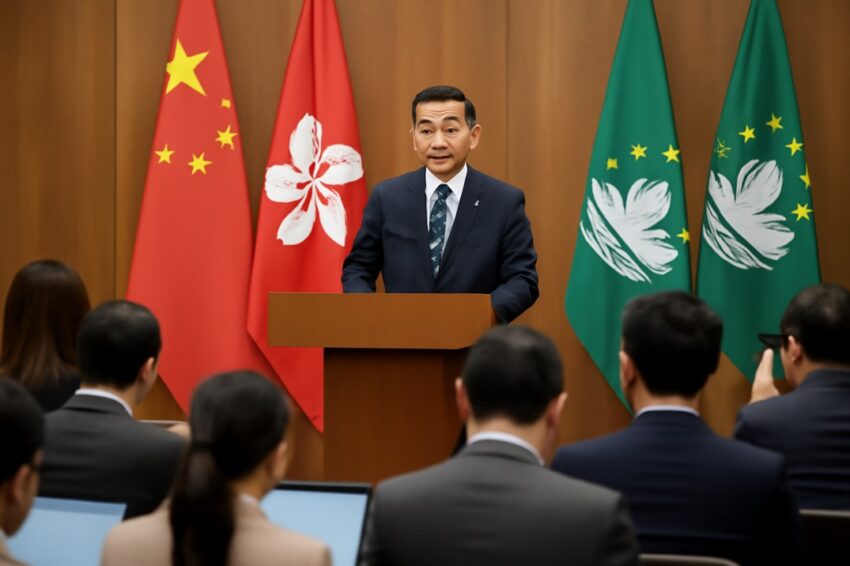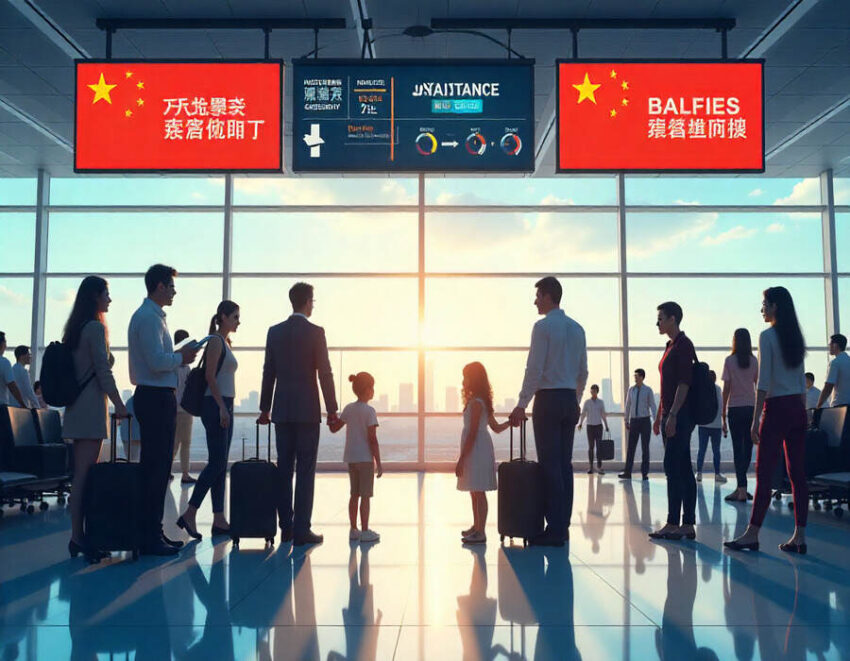China Expands Talent Visa Scheme to Hong Kong and Macau, Boosting Tourism and Business Travel Opportunities

Starting November 5, 2025, China is set to broaden the scope of its talent visa program, enhancing the movement of professionals between mainland China, Hong Kong, and Macau. This expansion is expected to unlock new tourism and business travel opportunities, benefiting both professionals and the tourism industry. The National Immigration Administration (NIA) has confirmed that professionals from a range of sectors, including scientific research, culture, education, healthcare, and law, will be able to apply for multiple-entry permits under the new scheme. This move promises a wave of cross-border collaboration and tourism growth for both Hong Kong and Macau.
A Wider Reach for Mainland Professionals
Previously, the talent visa scheme was limited to specific regions within China, including Beijing, Shanghai, and the Guangdong-Hong Kong-Macau Greater Bay Area. The new expansion opens doors to a wider range of professionals from key mainland regions, such as the Yangtze River Delta, Beijing-Tianjin-Hebei, and all national pilot free trade zones. These expanded areas will significantly increase the pool of eligible professionals, further integrating mainland talent with the thriving economies of Hong Kong and Macau.
With this change, professionals who meet the criteria, including high-level experts in various industries, can now apply for a multiple-entry visa valid for one to five years. Each visit can last up to 30 days, offering them the flexibility to travel between the regions for work and collaboration, which will benefit both the business community and tourism industries in these areas.
Facilitating Cross-Border Work and Tourism
This expansion is not just about attracting talent—it is about fostering deeper economic and cultural ties between mainland China and the Special Administrative Regions. The multiple-entry visa scheme will allow professionals from across mainland China to visit Hong Kong and Macau without the need for frequent re-application, making cross-border work and travel smoother than ever.
Tourism operators in Hong Kong and Macau will particularly benefit from the influx of these high-level professionals. Business travelers often extend their trips to explore leisure activities in these regions, boosting the hospitality and tourism sectors. This increased mobility is expected to contribute significantly to the local economies, as it provides more opportunities for business meetings, conferences, and networking events.
By facilitating easier travel for professionals, this scheme will enhance Hong Kong and Macau’s status as global business hubs, while also promoting cultural exchanges. As professionals travel to engage in collaborations, they are likely to explore tourist attractions, dining options, and local events, contributing to the tourism growth.
Supporting Innovation and Economic Integration
The expanded talent visa scheme is part of China’s broader “talent-power” strategy, which views talent as a vital resource for driving innovation and economic growth. By allowing professionals in scientific research, technology, healthcare, and other sectors to work more freely across borders, the initiative is expected to stimulate innovation in both Hong Kong and Macau, enhancing the regions’ global competitiveness.
For mainland regions, the initiative promotes greater integration with Hong Kong and Macau’s advanced business and tourism infrastructure. Professionals based in emerging cities and free trade zones, such as the Yangtze River Delta and Beijing-Tianjin-Hebei, will now be able to travel seamlessly between their home regions and the SARs, contributing to the greater Bay Area’s long-term development.
What This Means for Tourists and the Tourism Sector
The new visa program is likely to have a ripple effect on the tourism sector in Hong Kong and Macau. With more mainland professionals traveling frequently, the regions will witness an uptick in business-related tourism, which is a critical market segment for the hospitality and travel industries.
Tourist destinations, hotels, and event organizers in Hong Kong and Macau will find more opportunities to cater to professionals attending business meetings, conferences, and events. Additionally, the relaxed travel conditions will encourage more cross-border tourism, benefiting cultural, historical, and leisure destinations across both SARs.
Travel agencies could see an increase in demand for business and leisure travel packages designed specifically for mainland professionals visiting Hong Kong and Macau. With easier visa approvals and more flexible travel options, the flow of professionals to these regions will help foster greater cultural and business exchanges.
The Role of Technology in Streamlining Travel
To facilitate the increased movement of professionals, the NIA is also implementing biometric “smart channel” clearances, such as facial-recognition e-gates, at key border crossings between mainland China, Hong Kong, and Macau. These technological advancements are designed to speed up the entry and exit process for frequent travelers, making it more convenient for them to visit the regions for both work and leisure.
As the talent visa scheme is fully rolled out, border and immigration authorities will likely continue to refine the process, ensuring a smooth and efficient travel experience for professionals across all regions. The increased efficiency at the borders will help drive both tourism and business exchanges, boosting Hong Kong and Macau’s status as leading international travel destinations.
Looking Ahead: How to Leverage This New Opportunity
For mainland professionals in sectors such as healthcare, education, culture, and technology, this expanded talent visa scheme presents a golden opportunity to engage more actively in the business and cultural life of Hong Kong and Macau. Professionals from these fields are encouraged to check with local authorities or employers about their eligibility and begin preparing the necessary documents for their visa applications.
For businesses in Hong Kong and Macau, this initiative provides an opportunity to tap into a broader pool of talent from mainland China. Companies can benefit from the ease of cross-border collaboration, which is crucial for driving innovation and business growth. Tourism businesses should also look to capitalize on the increased travel by promoting packages that cater to the needs of business professionals.
For the tourism sector, this program provides an opportunity to welcome more visitors, both for business and leisure, strengthening the position of Hong Kong and Macau as leading global destinations.
A Step Toward Greater Global Integration
The expansion of the talent visa scheme marks a new chapter in cross-border cooperation between mainland China, Hong Kong, and Macau. As this program facilitates the movement of professionals, it will not only support business growth but also fuel tourism in the region. This initiative is a win-win for both professionals seeking greater mobility and the tourism sector in Hong Kong and Macau, which stands to benefit from an increase in both business travel and leisure tourism.
The post China Expands Talent Visa Scheme to Hong Kong and Macau, Boosting Tourism and Business Travel Opportunities appeared first on Travel And Tour World.